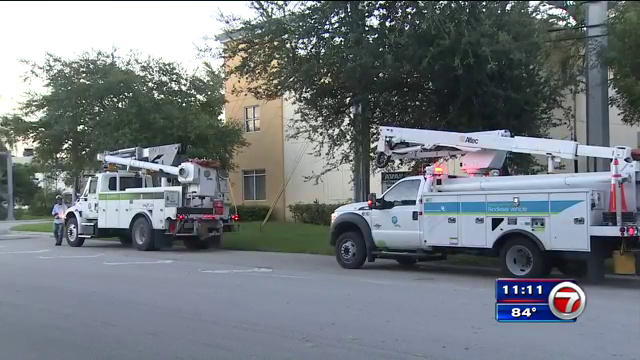TALLAHASSEE, Fla. (AP) — Nearly 5 million customers in Florida are going to pay more for electricity in the coming year after state regulators voted Tuesday for a substantial rate hike.
The Florida Public Service Commission approved an $811 million rate hike being sought by Florida Power & Light.
The rate hike will be phased in over a four-year period, but the first jolt will come in January when the average residential bill is expected to rise by about $7 a month. Rates will also go up in January 2018 and June 2019.
FPL had initially sought a $1.3 billion rate hike, but agreed to a smaller amount after reaching a settlement with several groups including the association that represents Florida retailers.
Company officials say the extra money will help pay for improvements, including a new natural gas plant that is expected to start up in 2019. FPL also has pointed out that its rates are lower than they were a decade ago.
“The agreement benefits all of our customers by ensuring rates continue to remain low for at least the next four years while also enabling continued smart investments in reliability and clean energy,” said FPL President and CEO Eric Silagy in a statement.
PSC members, who are appointed by Gov. Rick Scott, also defended the proposal before voting. They said that FPL has gotten good marks for its service and noted that its rates are among the lowest in the state.
PSC Chairman Julie Brown said that by approving a four-year proposal it would guarantee “price predictability” for customers, while Commissioner Ronald Brise asserted that customers “pockets won’t be injured” by the rate hike.
But there were plenty of critics of the proposal, including AARP and the Sierra Club. Frank Jackalone, staff director for the Sierra Club’s Florida chapter, said the PSC had approved “a huge rate hike for unnecessary, climate disrupting, gas-burning power plants.”
State Sen. Jose Javier Rodriguez, a Miami Democrat, also blasted the PSC for approving a deal for a monopoly that is “bad for consumers, bad for the market, bad for the environment and ultimately bad for our democracy.”
FPL is the state’s largest utility and has about 4.8 million customers, including all of south Florida.
Copyright 2024 The Associated Press. All rights reserved. This material may not be published, broadcast, rewritten or redistributed.

